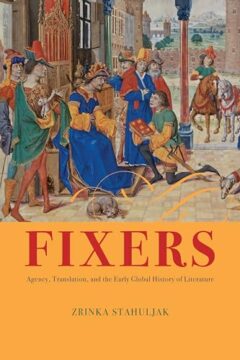Marion Turner at the LRB:

Scholars of medieval literature and history have been thinking about the idea of the ‘global Middle Ages’ for twenty years or more. Books such as Janet Abu-Lughod’s Before European Hegemony: The World System AD 1250-1350 (1989) laid the groundwork that has been built on by scholars such as Geraldine Heng and Susan Noakes, who set up the Scholarly Community on the Global Middle Ages (its website features projects ranging from ‘Global Jerusalem’ to ‘East Africa between Asia and Mediterranean Europe’ to ‘The Story of Global Ivory in the Premodern Era’). There are problems with the concept, of course: Nora Berend has argued that the term ‘Middle Ages’ is Eurocentric, and that ‘global’ is anachronistic when applied to the period.
One of the structures that underpinned medieval European culture was multilingualism. Petrarch, Dante and Boccaccio all wrote in both Latin and Tuscan. In later medieval England, educated men were trilingual, fluent in French, Latin and English, and some knew more (Chaucer, for example, was proficient in Tuscan). At the Council of Constance, in 1417, the English cleric Thomas Polton reported that the English spoke five different native languages: English, Welsh, Irish, Gascon and Cornish.
more here.
